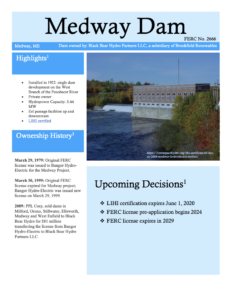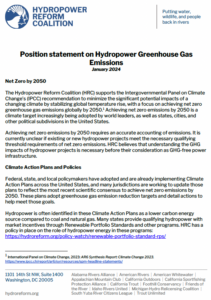FERC Holds PG&E Accountable for 2023 Butte Canal Failure
On November 19, 2024, the Federal Energy Regulatory Commission (FERC) issued a letter to PG&E about a major canal break and two canal blockages in 2023 at PG&E’s DeSabla-Centerville Hydroelectric Project on Butte Creek. The canal break had extremely damaging environmental effects. FERC’s letter called the canal break “preventable” and deemed it a violation of the Project’s license.
Butte Creek contains the only run of spring-run Chinook in the Central Valley that is considered “viable.” CSPA has been working to protect this keystone run of fish since 2003.
On August 9, 2023, the Butte Creek Canal developed a hole through which water entirely breached the structure and caused major erosion and a mudslide down a hill into Butte Creek. The creek turned orange with a massive amount of sediment. The California Department of Fish and Wildlife (CDFW) estimates that 51-55 of the 95 documented spring-run Chinook salmon that migrated to Butte Creek to spawn in 2023 died as a result of the elevated turbidity in Butte Creek. Steelhead and foothill yellow-legged frogs, which like spring-run Chinook salmon are both listed as threatened under the Endangered Species Act, were also harmed. Aquatic insects and water quality also suffered, both in the short and long term.
FERC ordered PG&E to prepare a plan within 3 months to mitigate the adverse effects of the loss of 54-59 % of Butte Creek’s 2023 year-class of adult spring-run Chinook The letter suggested that mitigative action may include habitat improvement, fish stocking, fish passage improvements, funding for habitat improvement projects or broodstock rearing, or other similar measures.
FERC also ordered PG&E to coordinate with state and federal resource agencies to conduct an ongoing foothill yellow-legged frog (FYLF) population assessment and to file a plan for additional FYLF monitoring and possible mitigation in Butte Creek.
Finally, FERC ordered PG&E to provide a plan and schedule for bringing the Butte Canal back into service and for addressing any outstanding canal deficiencies.
This latest canal disaster is the most severe of a series of canal failures at the DeSabla-Centerville Project over the last two decades.
The condition of the remaining population of Butte Creek’s spring-run Chinook salmon is dire, at low numbers not seen since the turn of the century. There is an urgent need for a long-term plan for the disposition of DeSabla-Centerville Project that eliminates or remediates its obsolete infrastructure. Since the Project is a money loser, its sole benefit is that it improves flows and water temperatures for salmon by importing water to Butte Creek from the West Branch Feather River. A safe and reliable means to continue this import, with or without PG&E, is desperately needed.
This article was originally posted by CSPA.


